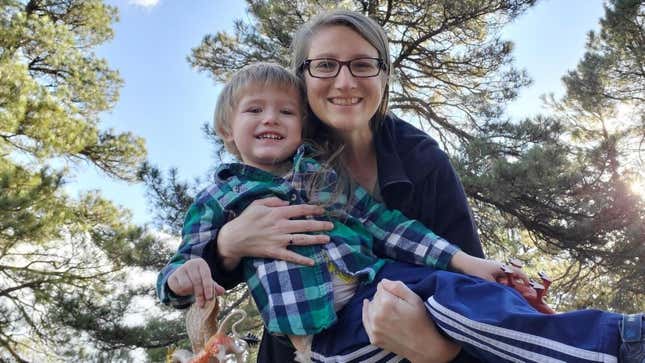Arizona Mom’s Journey to Get Off Child Abuse Registry After Using Medical Marijuana Is Over
“She’s been terrorized by this agency for four years," an attorney for Lindsay Ridgell told Jezebel. "It was a constant threat."
JusticePolitics

In 2019, Lindsay Ridgell was told she was a negligent mother because she used medical marijuana, which she’d been prescribed for a decade, during her pregnancy. Her difficult pregnancy was made worse by hyperemesis gravidarum, a condition that causes “extreme, persistent nausea and vomiting,” according to the Cleveland Clinic. Ridgell used medical marijuana during her pregnancy, as she had for the past 10 years, to help alleviate those symptoms.
Arizona legalized medical marijuana more than a decade ago and legalized recreational use in 2021. Still, less than a month after her son’s birth, Ridgell lost her job with Arizona’s Department of Child Safety (DCS) and was put on the state’s central registry for child abuse. The baby had briefly stopped breathing; the doctor called a code, and he was resuscitated. Medical staff ran a battery of tests, and he tested positive for marijuana.
Ridgell’s son turned out to be OK: One week after the birth, and after a stint in NICU, he was discharged from the hospital. The doctors said he shouldn’t have “lasting symptoms,” Ridgell told Jezebel. But this didn’t seem to matter to Arizona’s child welfare system, which placed Ridgell on the state’s child abuse blacklist.
Ridgell fought back, taking the agency to court multiple times. “I was on edge,” she told me by phone. “Every couple of months, every year, I would get bad news, but we would appeal.”
-

-

-

-

-

-

-

-

-

-

-

-

-

-

-

-

-

-

-

-

-

-

-

-

-

-

-

-

-

-

-

-

-

-

-

-

-

-

-

-








































